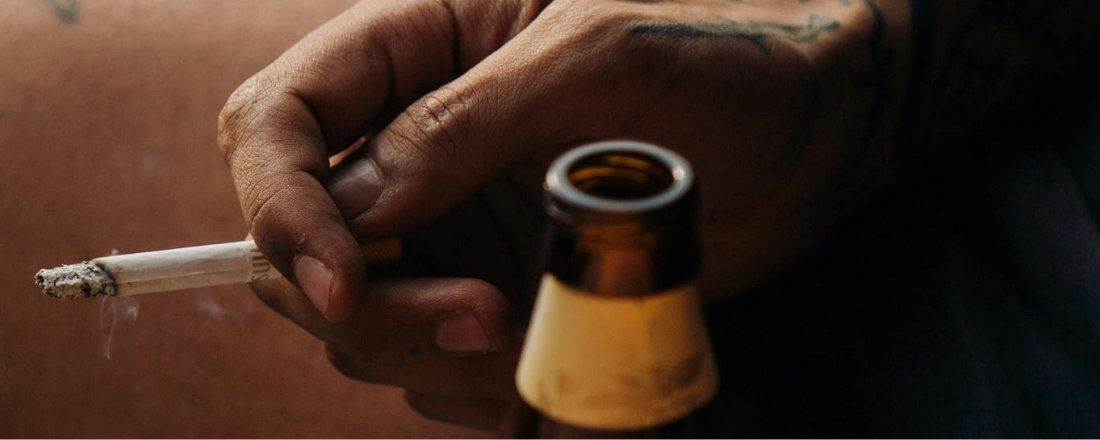
Press Release
New PHI Study Shows Alcohol and Drug Use Cause Significant Harms that Go Beyond the Individual
-
Focus Areas
Alcohol, Tobacco, Drugs & Mental Health -
Issues
Alcohol -
Expertise
Research – Quantitative, Research – Surveillance, Research – Survey -
Programs
Alcohol Research Group -
Strategic Initiatives
Opioids

A new study estimates that over their lifetime, more than a third of U.S. adults or 113 million people are harmed from someone else’s drinking while 46 million experience harms from someone else’s drug use. Among study respondents, 34.2% experienced secondhand harms from alcohol, 5.5% from cannabis, 7.6% from opioids, and 8.3% from other drugs.
The study, Prevalence and correlates of alcohol and drug harms to others: Findings from the 2020 U.S. National Alcohol Survey, is the first to measure secondhand harms from alcohol and other drugs and their co-use. Harms included traffic accidents, vandalism, physical harm, financial issues and family or marriage problems. However, those most at risk of experiencing these harms differed by gender, race and ethnicity, and marital status. The study was conducted by the Alcohol Research Group, a program of the Public Health Institute, in collaboration with RTI International and published in the Journal of Studies on Alcohol and Drugs.
Women, white individuals, those who are separated, divorced or widowed, and people with a history of alcohol problems were more likely to be harmed by someone else’s substance use than their counterparts.
Researchers also found differences by race and substance type. Black respondents experienced fewer harms from secondhand alcohol or opioid use than their white counterparts but reported more from other’s cannabis use.
Black individuals are more likely to face legal repercussions from cannabis use and be randomly drug tested, which results in financial harms and family difficulties that then affects the larger community, the authors wrote.
When assessing the individual who used substances, results showed that people who drank more than the recommended low-risk drinking guidelines had slightly higher odds of experiencing secondhand alcohol harms, whereas people who frequently used cannabis had lower odds of secondhand cannabis harms. Yet people who used drugs other than cannabis in the past year were more likely to report harms from secondhand cannabis use. This may be because people who use drugs socialize together and increase the likelihood of being harmed.
The study also found significant overlap in the harms caused by different substances. About two-thirds of people reporting secondhand harms from someone else’s opioid use also reported secondhand harms from someone else’s drug use. Similarly, nearly 30% of individuals who reported lifetime harms from someone else’s alcohol use also reported harms from others’ drug use. Of those reporting secondhand drug harms, over 70% also reported secondhand alcohol harms.
Given these overlaps of harms from different substances, the study emphasizes the need of cross-substance population-level interventions and policies to reduce secondhand harms. These include proven approaches that have reduced secondhand alcohol harms, such as increasing alcohol prices and regulating sales hours, which may also work to curb drug use.
Developing other strategies that address drug use and subsequent harms such as increasing cannabis taxes based on THC content and medication disposal programs, could also help mitigate subsequent harms.

We often don’t consider how alcohol and drug use affects people other than the person using them. It is critical to understand how far these harms extend into our communities so we can develop more effective policies and interventions to better support both the individual and those around them.Erika Rosen, PhD
Postdoctoral Fellow and Associate Scientist, Alcohol Research Group, Public Health Institute
To conduct the study, researchers analyzed data from the 2019-2020 National Alcohol Survey, which included data from 7,799 respondents aged 18 and older.
Read the full study: Rosen, EM, Kerr, WC, Patterson, D, Greenfield, TK, Ramos, S, Karriker-Jaffe, KJ. (2024). Prevalence and correlates of alcohol and drug harms to others: Findings from the 2020 U.S. National Alcohol Survey.
For media inquiries, contact Diane Schmidt: dschmidt@arg.org.
—
Support for this paper was provided by the National Institute on Alcohol Abuse and Alcoholism (NIAAA) under award numbers T32AA007240, P50AA005595, R01AA029001. The content is solely the responsibility of the authors and does not necessarily represent the official views of the NIAAA or the National Institutes of Health.
About the Alcohol Research Group
For over 60 years, the Alcohol Research Group (ARG) has been actively engaged in critically needed alcohol-and other drug-related public health research. ARG studies drinking and other drug use and how these and other factors such as gender, race/ethnicity, sexual identity, socioeconomic disparities, and environmental differences affect health. ARG is also home to the NIAAA-funded National Alcohol Research Center and training program. Further research on this topic is currently being conducted in the Center’s projects focused on alcohol services and high intensity drinking. Please visit arg.org.
ARG is a program of the Public Health Institute, an independent nonprofit organization, dedicated to promoting health, well-being and quality of life for people throughout California, across the nation and around the world. Please visit phi.org.
More Updates
Work With Us
You change the world. We do the rest. Explore fiscal sponsorship at PHI.
Support Us
Together, we can accelerate our response to public health’s most critical issues.
Find Employment
Begin your career at the Public Health Institute.



